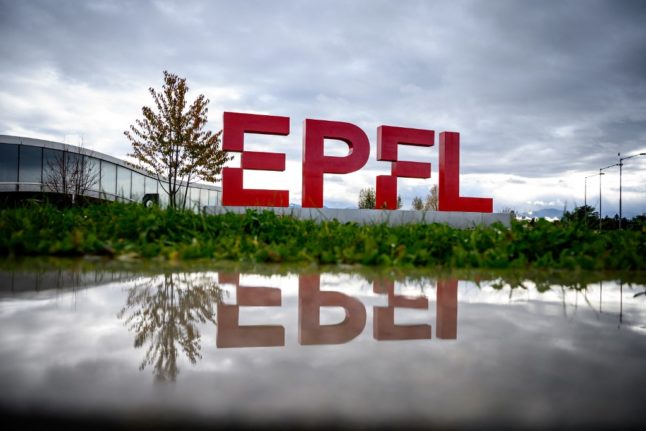International students account for 48 percent of EPFL’s 10,894 students — the highest ratio of all Swiss universities.
These students are attracted by EPFL’s global reputation for top-notch education and research in fields such as engineering, sciences, and technology in general.
Now, however, the university is seeking to limit the number of foreigners it admits each year.
Why is this?
The number of students at EPFL more than doubled in the last decade, “creating a number of challenges when it comes to maintaining our high educational standards,” the university said in a recent press release
“Our lecture halls are saturated, the student-faculty ratio is on the rise, and the workload for our support services has expanded considerably.”
The tense situation is also impacting areas outside of the campus itself.
“We had to coordinate our class schedules with the University of Lausanne to avoid overcrowding the public transport lines,” EPFL said.
The university has launched a consultation procedure on Monday into capping the number of new Bachelor’s students from abroad to 3,000 admissions each year from 2025 to 2029. The process was to be completed in March.
Will EPFL cut the number of Swiss students as well?
No.
All applicants from Switzerland would still be accepted without restriction, as required by law.
That’s because, as a public university, the EPFL is financed predominantly by the federal government — that is, tax money.
For this reason, the residents of Switzerland have admission priority over their foreign counterparts, and are not subject to any caps.
The same rules apply to all public universities — whether financed by the federal government or cantons.
Have any other Swiss universities introduced similar measures?
No such restrictions have been implemented elsewhere, though EPFL’s sister institution, the ETH in Zurich, where foreigners make up 35 percent of the student body, has also had to tackle the problem of overcrowding.
In 2023, it did introduce some tightening measures, but it has adopted a different strategy from EPFL’s.
According to its rector, Günther Dissertori, capping the number of foreign students “is currently not on the table for ETH Zurich because they represent a sweeping and rigid remedy. Introducing them would serve to contradict the high demand for specialists in IT and healthcare, for instance. We need to be able to take this into account in our admissions.”
Instead, the ETH plans to change its admission rules for international Master’s degree students by introducing stricter selection criteria based on their performance at universities in their home countries.
READ ALSO: How much universities in Switzerland charge foreigners compared to locals



 Please whitelist us to continue reading.
Please whitelist us to continue reading.
Member comments